The 76th Annual Meeting of Advisory Trustees and Board of Directors of Southwest Research Institute scheduled for February 19, 2024, will feature presentations on key SwRI research programs conducted during the 2023 fiscal year. Contact Robert Crowe, +1 210 522 4630 or Joanna Quintanilla, +1 210 522 2073 for more information or to interview the researchers.
Presentations
Clearing Case Backlogs with DNA Forensics
A rapidly expanding program at Signature® Science LLC, a wholly owned subsidiary of SwRI, relies on enhanced capabilities for analyzing DNA samples to help law enforcement agencies clear case backlogs and solve crimes.
Related Links:
Forensic DNA Casework at the Center for Advanced Genomics
For more information, visit Signature® Science.
Leslie Parke, manager, Signature® Science, LLC.
Reducing Greenhouse Gas Emissions
Low-Carbon Hydrogen for Industry
Hydrogen holds unique promise for meeting future energy demands while achieving net-zero emissions goals. Through a multidisciplinary approach, SwRI is uncovering ways to reduce greenhouse gas emissions in an array of industrial processes, including decarbonizing the hydrogen production process.
Related Links:
Hydrogen and a Carbon-neutral Future
The Spectrum of a Hydrogen Economy
For more information, visit the Chemistry & Chemical Engineering Division.
Britton Travis, research engineer, Chemical Engineering Division
H2 ICE and Fuel Cells
Efforts to decarbonize the heavy-duty mobility sector are underway, with hydrogen fuel cell research and internal combustion initiatives and consortia focused on unlocking hydrogen’s potential.
Related Links:
Southwest Research Institute launches joint industry program to develop hydrogen combustion vehicle
SwRI’s CHEDE-9 consortium expands decarbonization research priorities
For more information, visit the Powertrain Engineering Division.
Matt Kubesh, research engineer, Powertrain Engineering Division

Courtesy of SwRI
SwRI created a joint industry program to retrofit a Class 8 heavy-duty vehicle with a hydrogen engine to showcase the low-impact potential of hydrogen-powered engines using current technology.
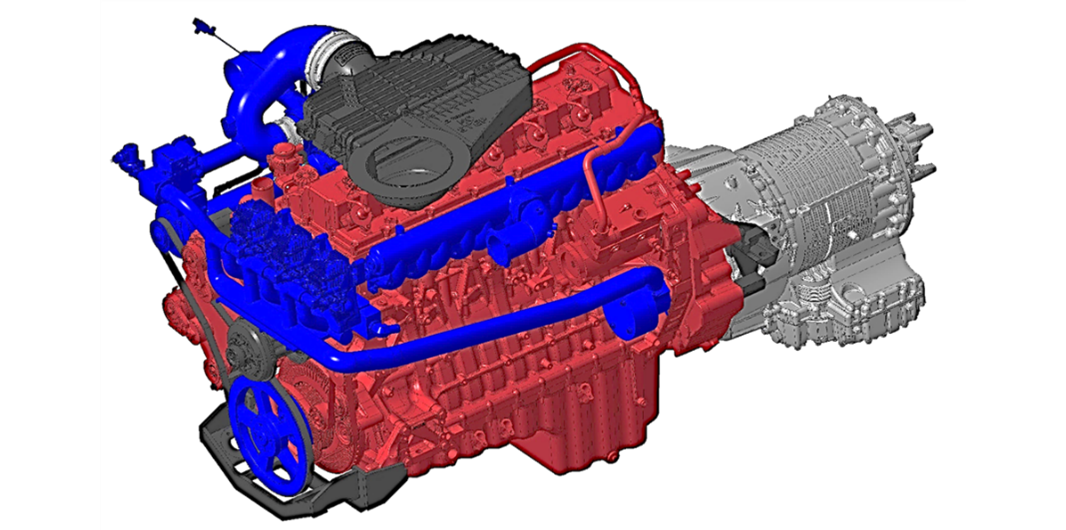
Courtesy of SwRI
The Class 8 heavy-duty vehicle will house an on-board emissions measurement system to demonstrate how a Hydrogen Internal Combustion Engine (H2-ICE) can power a low emission, heavy-duty vehicle, while producing near-zero carbon dioxide (CO2) emissions and ultra-low emissions of nitrogen oxides (NOx) and particulate matter pollution.
Project Z
An innovative internal research and development program, Project Z turns SwRI’s 1,500-acre campus into a testing ground for clean energy technologies. By striving for net-zero emissions at the Institute, researchers hope to find scalable solutions for decarbonization.
Related Links:
Advancing Net-zero Power Emissions
For more information, visit the Mechanical Engineering Division.
Joshua Schmitt, assistant program manager, Mechanical Engineering Division
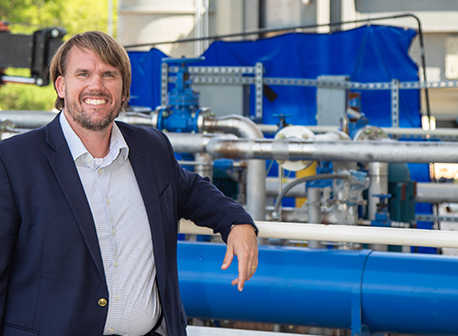
Courtesy of SwRI
SwRI's Joshua Schmitt specializes in designing energy systems, turbomachinery, heat exchangers, and energy storage technology. He applies this expertise to oxy-combustion, carbon capture, hydrogen storage, gas turbines, electrified thermal storage, solar power generation and supercritical carbon dioxide (sCO2) systems and components.
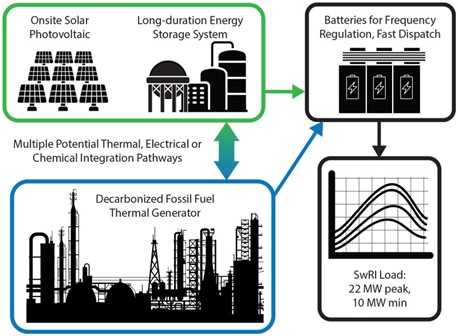
SwRI’s Project Z pilot concept studied decarbonization strategies using conventional and renewable resources, integrating clean fossil fuel technology, long-term energy storage and batteries for frequency regulation and fast dispatch.
Robotics and Inspections in Hazardous Environments
SwRI has developed robotic solutions that maneuver in and inspect hazardous environments. The team’s response to technical challenges posed by industry led to a new line of work with unique solutions and an award-winning approach that protects human health and safety while continuing critical operations.
Related Links:
SwRI receives $1.3 million to build robotic inspection system for nuclear waste storage tanks
For more information, visit the Intelligent Systems Division or the Mechanical Engineering Division.
Tori Wahlen, assistant manager, Intelligent Systems Division
Adam Cobb, manager sensor systems, Mechanical Engineering Division
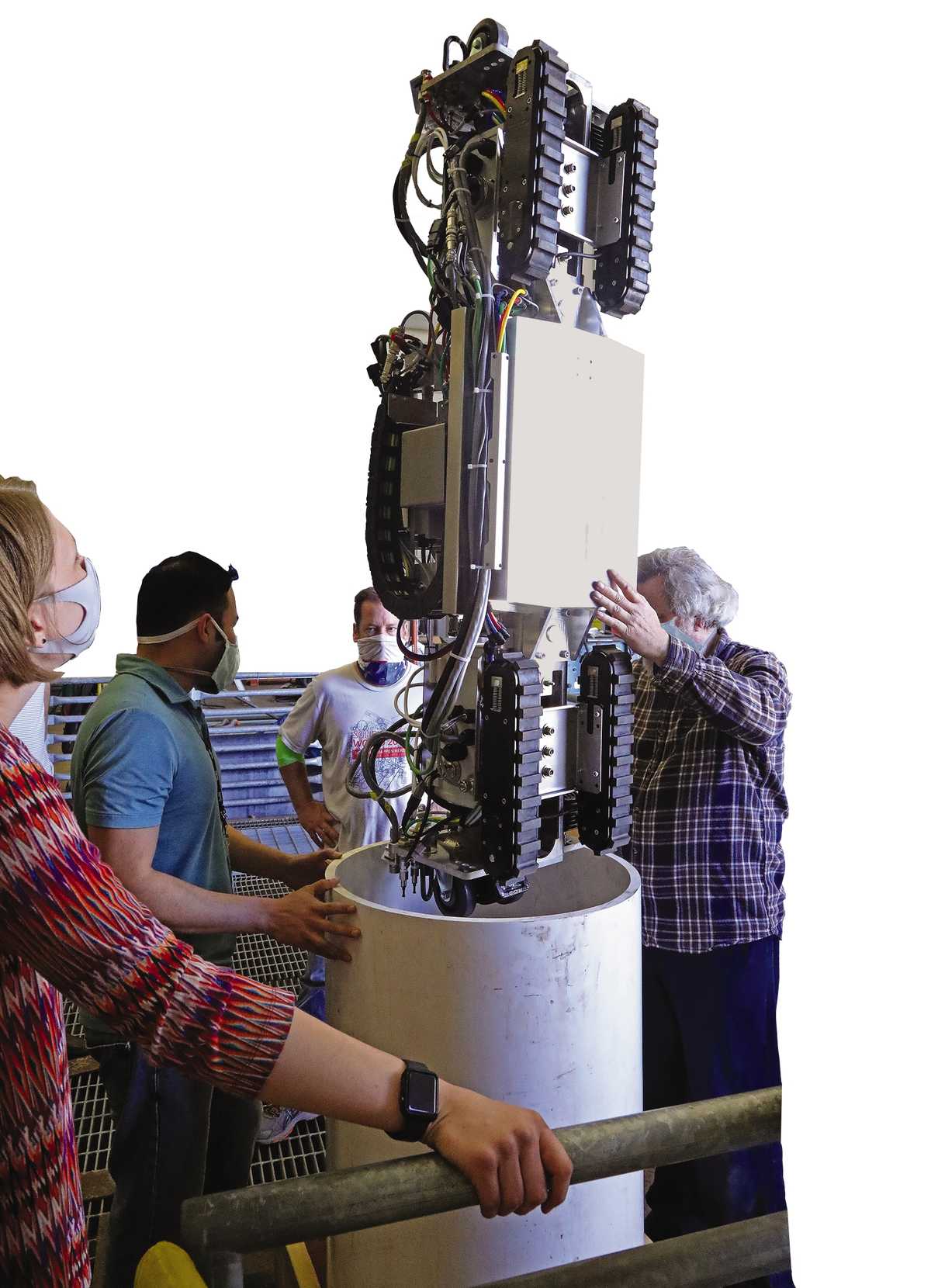
Courtesy of SwRI
SwRI automation and nondestructive evaluation engineers demonstrate how a custom mobile robot navigates a tight spot to ultimately evaluate the integrity of double-wall storage tanks that hold chemical and nuclear waste.
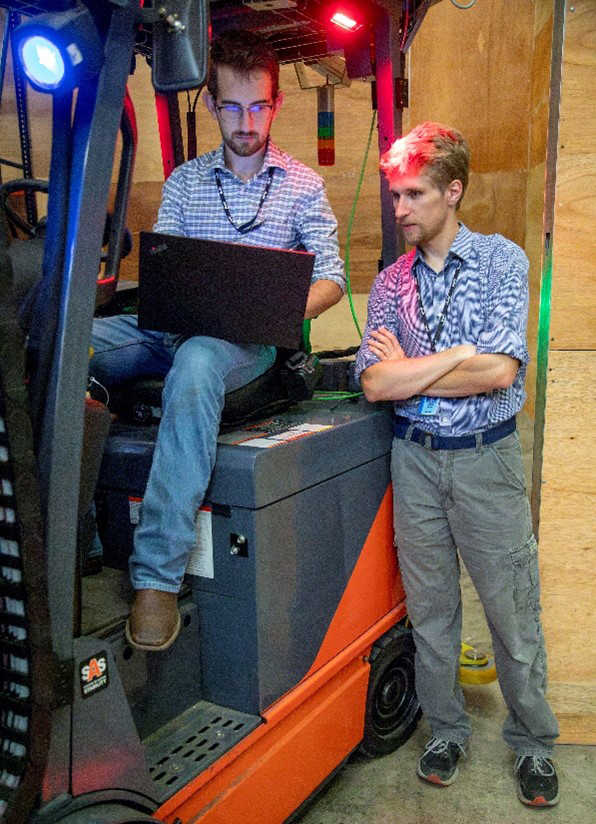
Courtesy of SwRI
SwRI adapted commercial equipment to develop a fully autonomous forklift capable of conducting warehouse operations on its own, keeping personnel away from hazardous materials while complying with industry standards.
Exploring Jupiter’s Trojan Asteroids
In 2021, NASA’s Lucy spacecraft embarked on the first robotic mission to explore Jupiter’s primitive Trojan asteroids. This presentation will highlight important discoveries made during a main belt asteroid flyby as the spacecraft makes the long journey to Jupiter’s Trojans to learn more about the early solar system.
Related Links:
SwRI-led Lucy observes first-ever contact binary orbiting an asteroid
SwRI-led Lucy mission shows Dinkinesh asteroid is actually a binary
NASA’s Lucy spacecraft poised to launch Oct. 16
Note: press releases contain downloadable images
For more information visit, the Solar System Science & Exploration Division.
Dr. Hal Levinson, program director, Space Science and Engineering Division

Courtesy of NASA/Goddard/SwRI/Johns Hopkins APL/NOIRLab
New images captured by NASA’s Lucy spacecraft confirmed that the small main belt asteroid Dinkinesh is a binary. This image shows the “moonrise” of Dinkinesh’s satellite. The SwRI-led mission will fly by 11 total asteroids, eight targets and three satellites, over its 12-year mission to Jupiter’s Trojan asteroids.

Courtesy of NASA/Goddard/SwRI/Johns Hopkins APL/NOIRLab
This image shows the asteroid Dinkinesh and its satellite as seen by the Lucy Long-Range Reconnaissance Imager (L’LORRI). As NASA’s Lucy Spacecraft departed the system, the SwRI-led Lucy team captured this image at 1 p.m. EDT (1700 UTC) Nov. 1, 2023, about six minutes after closest approach. From a range of approximately 1,010 miles (1,630 km), the satellite is revealed to be a contact binary, the first time such an object has been seen orbiting another asteroid.

Courtesy of NASA/JPL- Cal Tech
The SwRI-led Lucy mission will survey eight target asteroids in 12 years with one spacecraft, breaking records in its epic journey to Jupiter’s Trojan asteroids. These diverse, never-before-visited “fossils” left over from the formation of the solar system will reveal much about the origins of the solar system.
The Great American Eclipse
SwRI's Dr. Amir Caspi is leading two simultaneous projects to image the solar corona, the Sun’s outermost atmosphere, during the upcoming April 8 solar eclipse. One project will image the solar corona in infrared light from NASA’s high-flying WB-57 scientific aircraft while the other will study polarized white light from 35 separate observing stations spaced along the path of totality through the Citizen Continental-America Telescopic Eclipse 2024 project.
Related Links:
SwRI-led team successfully observes Australian eclipse in preparation for 2024 U.S. eclipse
SwRI-led study captures science data from Great American Eclipse
Technology Today Podcast episode 59: PREPARING FOR THE UPCOMING ECLIPSES
For more information visit, the Solar System Science and Exploration Division.
Dr. Amir Caspi, principal scientist, Space Science and Engineering Division

Courtesy of SwRI
The Sun’s corona, its outermost atmosphere, is typically only visible to the naked eye during a total solar eclipse. The SwRI-led Citizen Continental-America Telescopic Eclipse (CATE) 2024 project evaluated special cameras to measure the polarization of coronal light during the April 2023 total solar eclipse in Exmouth, Western Australia.
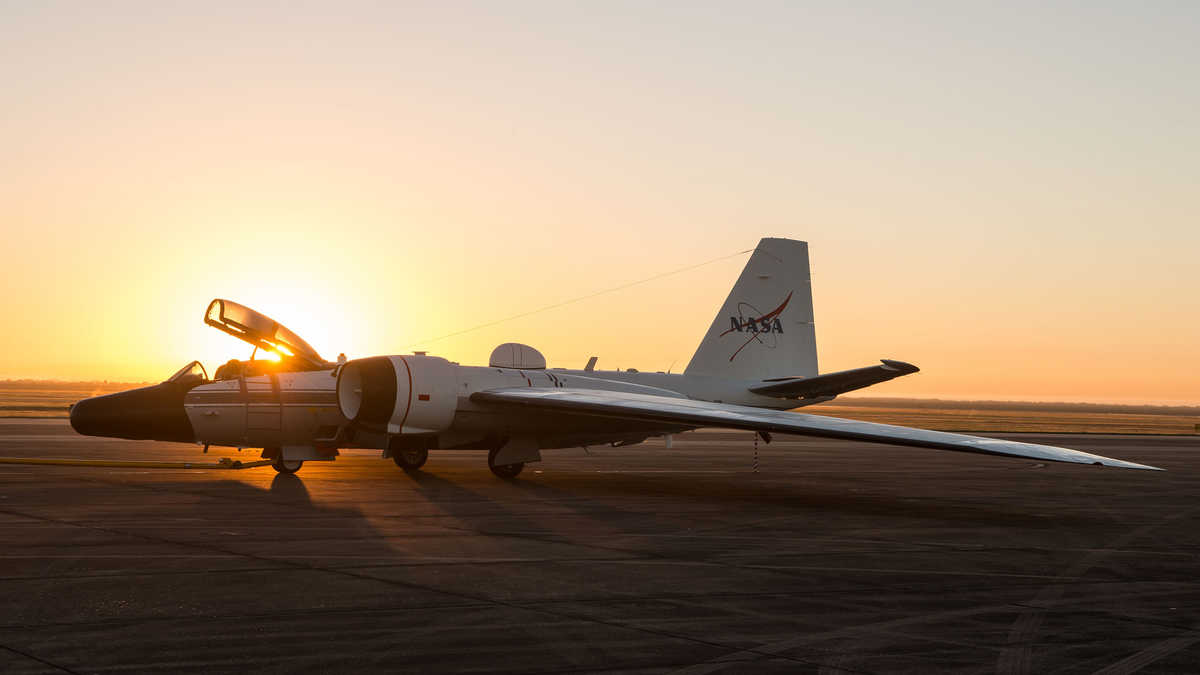
Courtesy of NASA/JSC
Scientists will image the solar corona in infrared light from NASA’s high-flying WB-57 scientific aircraft and in polarized white light from a series of 35 separate observing stations spaced along the path of totality through the Citizen Continental-America Telescopic Eclipse 2024 project.
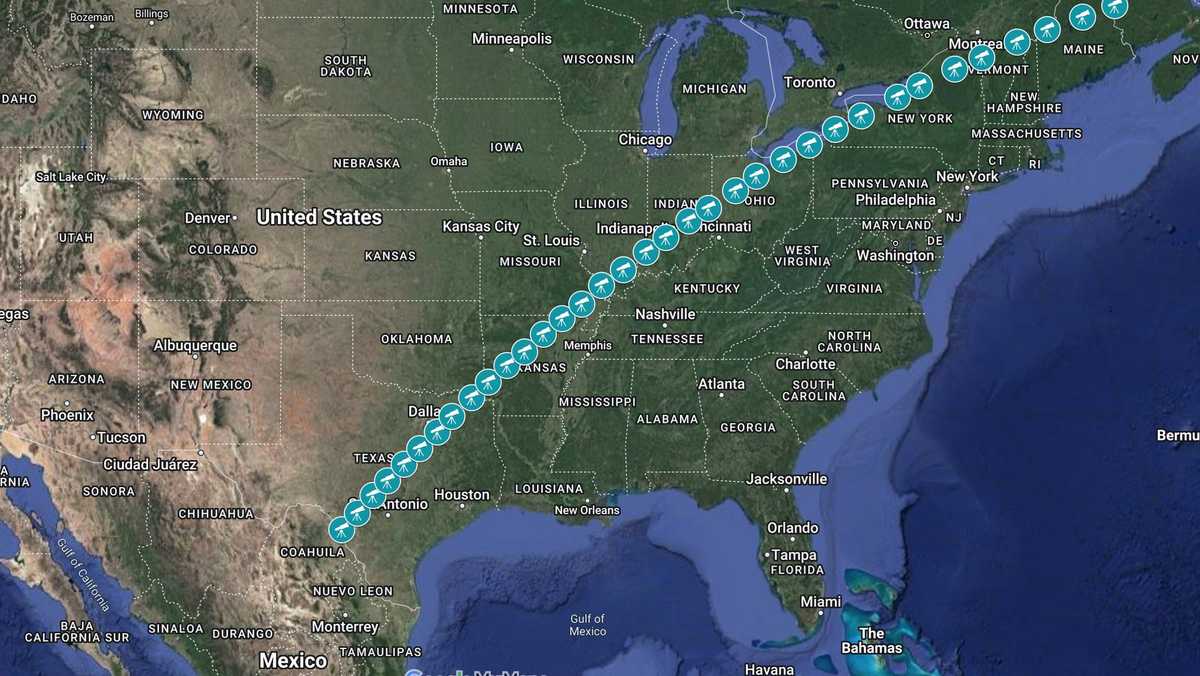
Courtesy of SwRI/ Dr. Amir Caspi
For the Citizen CATE 2024 project, 35 teams of community volunteers will observe the path of totality for the April 8, 2024, total solar eclipse to make an hour-long movie of the polarized light from the Sun’s corona.
